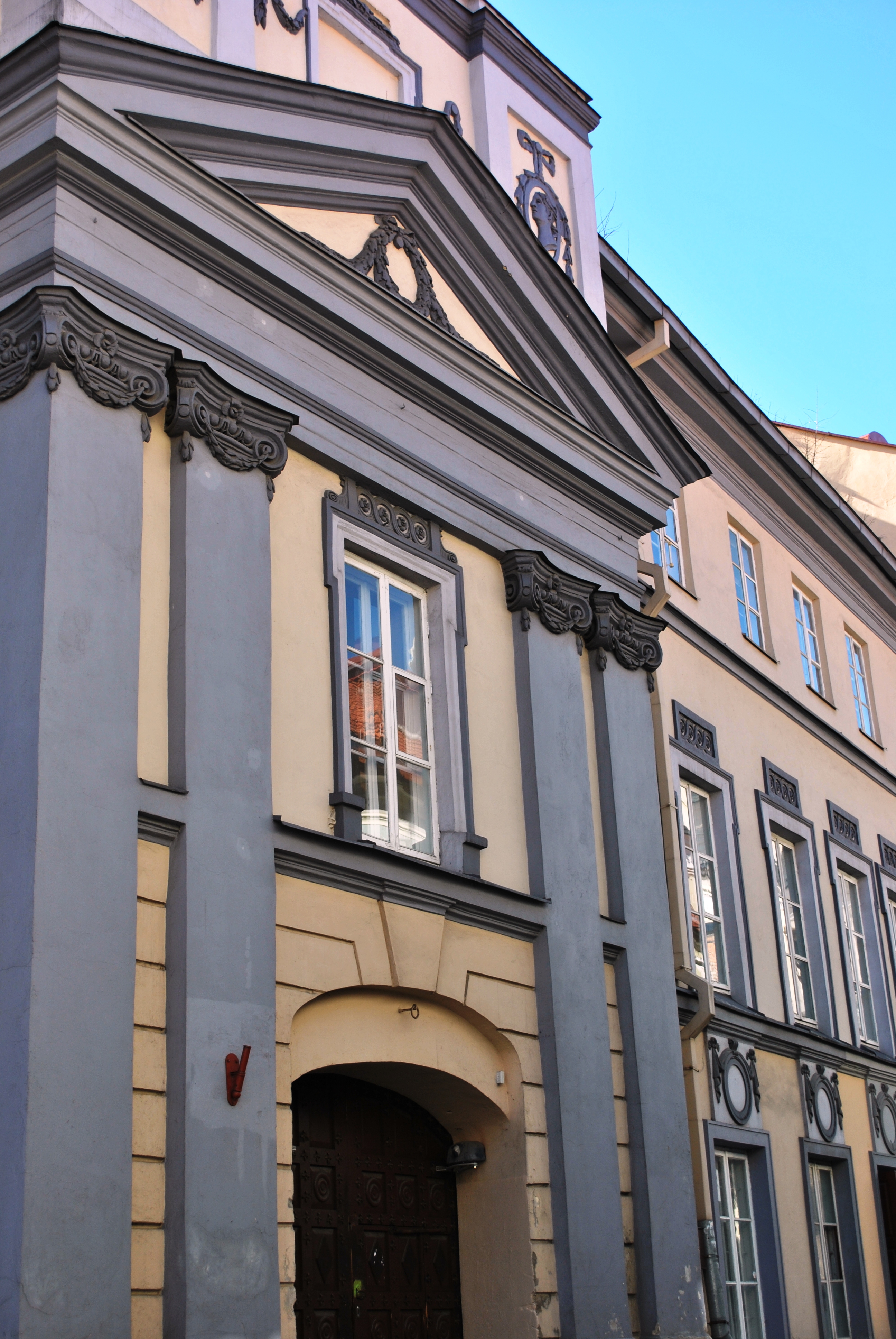Antoni Gorecki on:
[Wikipedia]
[Google]
[Amazon]
 Antoni Gorecki (1787 – 18 September 1861) was a
Antoni Gorecki (1787 – 18 September 1861) was a
 Antoni Gorecki (1787 – 18 September 1861) was a
Antoni Gorecki (1787 – 18 September 1861) was a Polish
Polish may refer to:
* Anything from or related to Poland, a country in Europe
* Polish language
* Poles
Poles,, ; singular masculine: ''Polak'', singular feminine: ''Polka'' or Polish people, are a West Slavic nation and ethnic group, w ...
poet and writer, author of satires and short stories for children.
He was born in 1787 in Vilnius
Vilnius ( , ; see also other names) is the capital and largest city of Lithuania, with a population of 592,389 (according to the state register) or 625,107 (according to the municipality of Vilnius). The population of Vilnius's functional urb ...
, where he finished primary school. In 1802 he started studying at the Faculty of Literature of the University of Vilnius
Vilnius University ( lt, Vilniaus universitetas) is a public research university, oldest in the Baltic states and in Northern Europe outside the United Kingdom (or 6th overall following foundations of Oxford, Cambridge, St. Andrews, Glasgow and ...
, where he became friends with Joachim Lelewel. In 1805 he graduated and soon afterwards he left Imperial Russia
The Russian Empire was an empire and the final period of the List of Russian monarchs, Russian monarchy from 1721 to 1917, ruling across large parts of Eurasia. It succeeded the Tsardom of Russia following the Treaty of Nystad, which ended th ...
for the Duchy of Warsaw
The Duchy of Warsaw ( pl, Księstwo Warszawskie, french: Duché de Varsovie, german: Herzogtum Warschau), also known as the Grand Duchy of Warsaw and Napoleonic Poland, was a French client state established by Napoleon Bonaparte in 1807, during ...
. In 1809 he volunteered for the Polish Army
The Land Forces () are the land forces of the Polish Armed Forces. They currently contain some 62,000 active personnel and form many components of the European Union and NATO deployments around the world. Poland's recorded military history stre ...
fighting alongside Napoleon Bonaparte
Napoleon Bonaparte ; it, Napoleone Bonaparte, ; co, Napulione Buonaparte. (born Napoleone Buonaparte; 15 August 1769 – 5 May 1821), later known by his regnal name Napoleon I, was a French military commander and political leader who ...
in the Napoleonic Wars
The Napoleonic Wars (1803–1815) were a series of major global conflicts pitting the French Empire and its allies, led by Napoleon I, against a fluctuating array of European states formed into various coalitions. It produced a period of Fren ...
. Between 1809 and 1812 he took part in most of the battles that took place in the territory of the former Polish–Lithuanian Commonwealth
The Polish–Lithuanian Commonwealth, formally known as the Kingdom of Poland and the Grand Duchy of Lithuania, and, after 1791, as the Commonwealth of Poland, was a bi-confederal state, sometimes called a federation, of Crown of the Kingdom of ...
. After the Congress of Vienna
The Congress of Vienna (, ) of 1814–1815 was a series of international diplomatic meetings to discuss and agree upon a possible new layout of the European political and constitutional order after the downfall of the French Emperor Napoleon B ...
he remained in exile and travelled across Europe, but finally in 1818 he returned to his hometown.
There he published many of his poems, short stories, fables and fairy-tales. Also, he was one of the most notable members of the Towarzystwo Szubrawców (''Scumbags Society'') and one of co-authors of its main organ - the ''Wiadomości Brukowe'' (''Tabloid News'') satirical weekly. In 1830 he again volunteered for the Polish Army and served during the November Uprising
The November Uprising (1830–31), also known as the Polish–Russian War 1830–31 or the Cadet Revolution,
was an armed rebellion in the heartland of partitioned Poland against the Russian Empire. The uprising began on 29 November 1830 in W ...
against Russia
Russia (, , ), or the Russian Federation, is a List of transcontinental countries, transcontinental country spanning Eastern Europe and North Asia, Northern Asia. It is the List of countries and dependencies by area, largest country in the ...
. After it was crushed, Gorecki had to leave his homeland and emigrated to France
France (), officially the French Republic ( ), is a country primarily located in Western Europe. It also comprises of Overseas France, overseas regions and territories in the Americas and the Atlantic Ocean, Atlantic, Pacific Ocean, Pac ...
, where he finally settled in Paris
Paris () is the capital and most populous city of France, with an estimated population of 2,165,423 residents in 2019 in an area of more than 105 km² (41 sq mi), making it the 30th most densely populated city in the world in 2020. S ...
. There, he was an active member of many notable Polish cultural and political associations. He also continued to publish new poems - eleven volumes all together. He also became one of the closest friends of Adam Mickiewicz
Adam Bernard Mickiewicz (; 24 December 179826 November 1855) was a Polish poet, dramatist, essayist, publicist, translator and political activist. He is regarded as national poet in Poland, Lithuania and Belarus. A principal figure in Polish Ro ...
. His son was later married to Mickiewicz's daughter, Maria.
Antoni Gorecki died on 18 September 1861, in Paris. He is buried in the Montmorency, Val-d'Oise
Montmorency () is a commune in the northern suburbs of Paris, France. It is located from the center of Paris.
Montmorency was the fief of the Montmorency family, one of the oldest and most distinguished families of the French nobility. It is ...
cemetery.
{{DEFAULTSORT:Gorecki, Antoni
1787 births
1861 deaths
Artists from Vilnius
Polish male writers
Vilnius University alumni